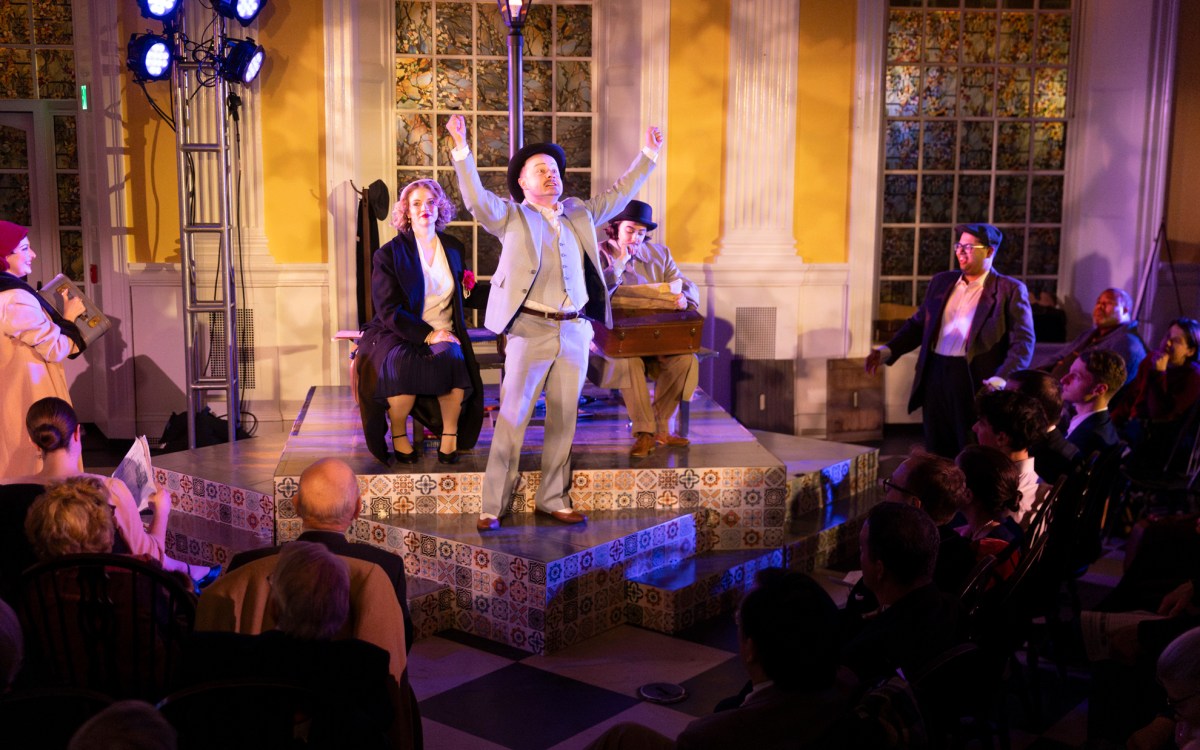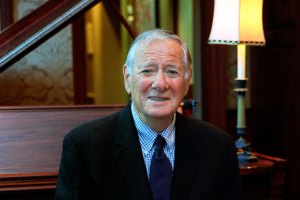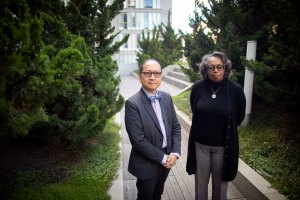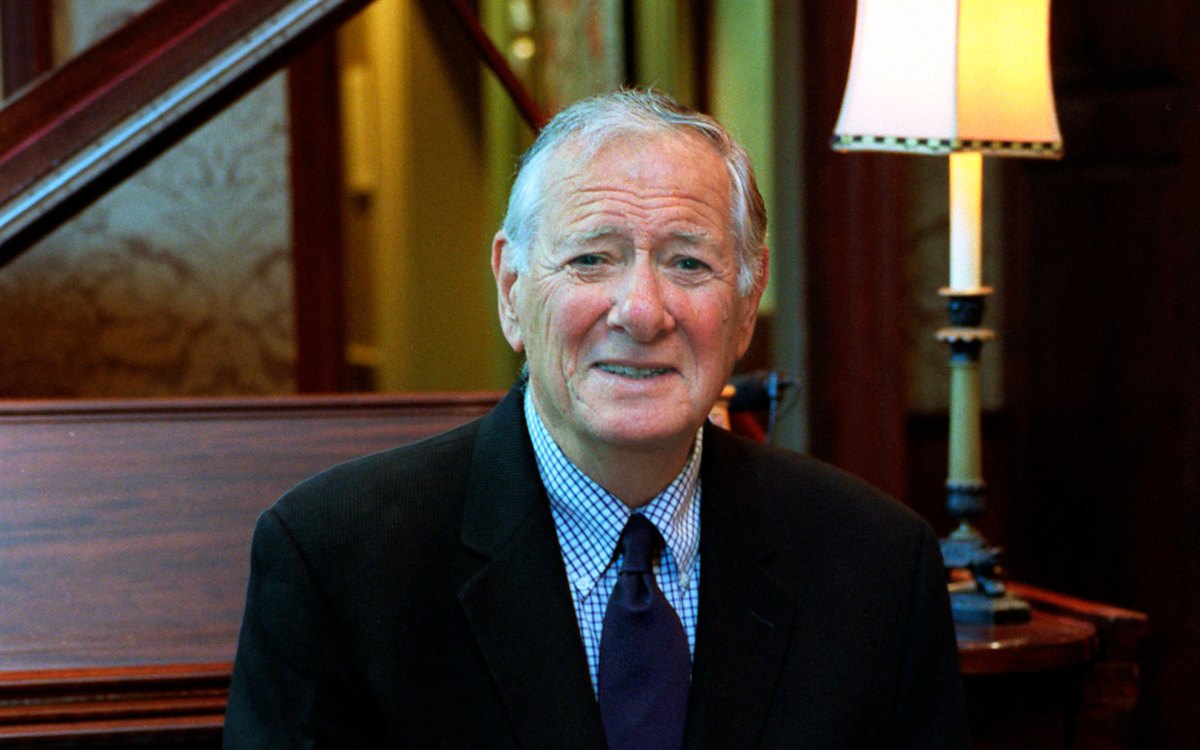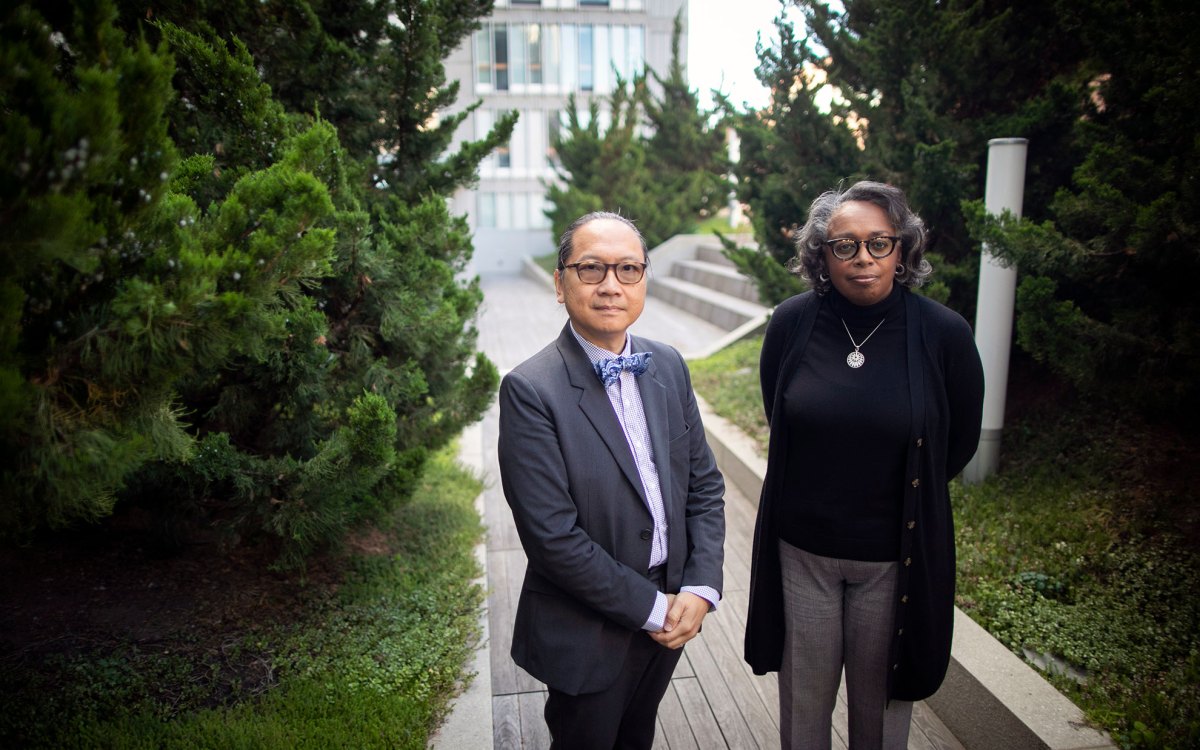This month in Harvard history
- July 17, 1810 – President Samuel Webber dies in office.
- July 15, 1838 – In a celebrated address at the Divinity School, Ralph Waldo Emerson, Class of 1821, attacks the rigidities he perceives in organized Christianity and elevates living, personal spiritual revelation above revelation from the distant past. “The sun shines to-day also,” he declares. In a letter to Scottish historian Thomas Carlyle, Emerson dubs the aftermath “the storm in our washbowl.”
- July 5, 1842 – University Hall suffers an explosion (gunpowder) – the second in its history. The event comes “[. . .] ‘after several attempts to injure the College by gunpowder,’ wrote President Josiah Quincy, and was effected ‘by the discharge of a bombshell of great size and power whereby the room was destroyed and great injury done to the adjoining rooms above and below. It has not been possible,’ Quincy added, ‘to discover either motive or agent for this daring and heinous offence.’ [. . .]” (Quoted from Harvard Magazine, May-June 1999, p. 72)
- July 6, 1858 – The College faculty adopts an elaborate system of equivalents allowing instructors to substitute private exams for part of the daily recitation grades. The practice of using private exams (as opposed to the more “public” orals administered by committee) has probably taken hold somewhat earlier. Although the introduction of written finals (1857) and private exams is a milestone, it takes another 30 years to expel the remnants of the old recitation system and President Josiah Quincy’s “Scale of Merit.”
- July 22, 1860 – U.S. presidential candidate Abraham Lincoln writes son Robert’s friend George Latham, who had joined Robert earlier that month in taking the Harvard College entrance examination. Robert passed, but Latham failed. Lincoln’s letter offers consolation and encouragement to try again. Latham eventually goes to Yale but leaves after two years.
- July 21, 1942 – Living in exile from the Netherlands because of World War II, Queen Wilhelmina makes a 25-minute afternoon visit to Harvard at the end of a two-day Boston stay. While in the Yard, she draws an applauding crowd of some 700 Summer School students and Harvard staff, and 750 officers of the Navy radio communications school mass in her honor as a Dutch flag flies from University Hall. In the absence of President James Bryant Conant, FAS Dean Paul H. Buck welcomes her inside Massachusetts Hall.- From the Harvard Historical Calendar, a database compiled by Marvin Hightower
